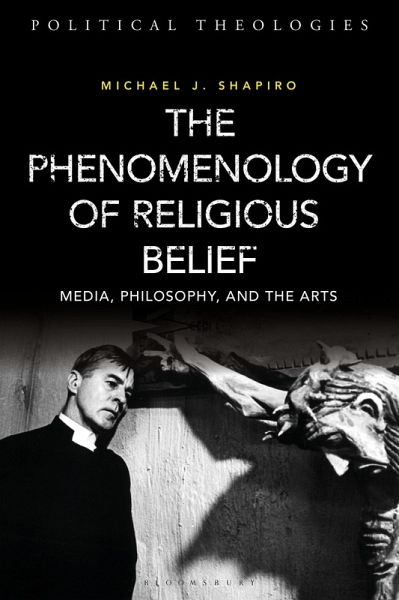
The Phenomenology of Religious Belief (eBook, ePUB)
Media, Philosophy, and the Arts
Versandkostenfrei!
Sofort per Download lieferbar
24,95 €
inkl. MwSt.
Weitere Ausgaben:

PAYBACK Punkte
12 °P sammeln!
In The Phenomenology of Religious Belief, the renowned philosopher Michael J. Shapiro investigates how art - and in particular literature and film - can impact upon both traditional interpretations and critical studies of religious beliefs and experiences. In doing so, he examines the work of prolific and award-winning writers such as Toni Morrison, Philip K. Dick and Robert Coover. By placing their work in conjunction with critical analyses of media by the likes of Ingmar Bergman and Pier Paolo Pasolini and combining it with the work of groundbreaking thinkers such as George Canguilhem, Giorg...
In The Phenomenology of Religious Belief, the renowned philosopher Michael J. Shapiro investigates how art - and in particular literature and film - can impact upon both traditional interpretations and critical studies of religious beliefs and experiences. In doing so, he examines the work of prolific and award-winning writers such as Toni Morrison, Philip K. Dick and Robert Coover. By placing their work in conjunction with critical analyses of media by the likes of Ingmar Bergman and Pier Paolo Pasolini and combining it with the work of groundbreaking thinkers such as George Canguilhem, Giorgio Agamben and Slavoj Zizek, Shapiro takes a truly interdisciplinary approach to the question of how life should be lived. His assessment of phenomenological subjectivity also leads him to question the nature of political theology and extend the criticism of Pauline theology.













